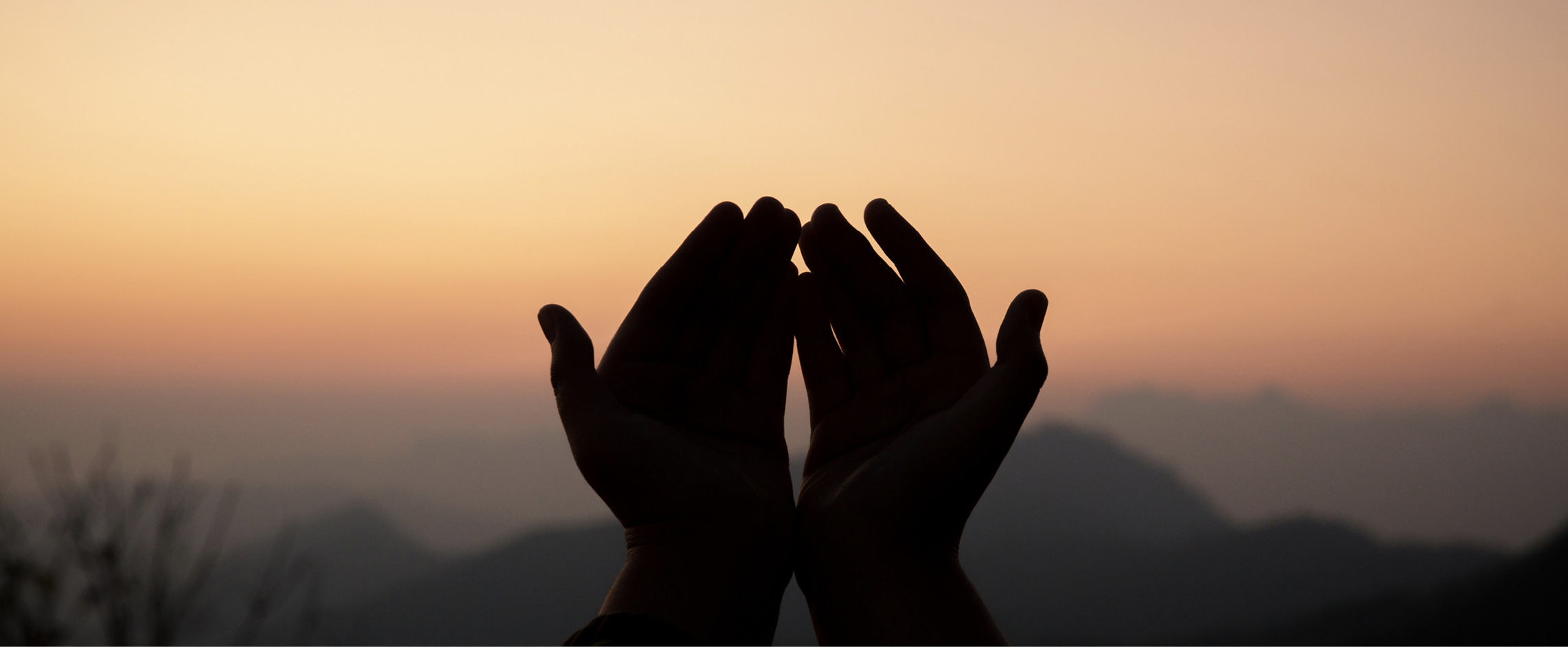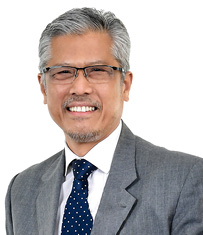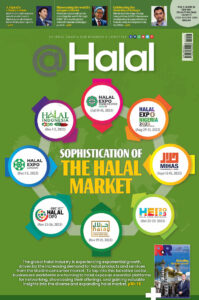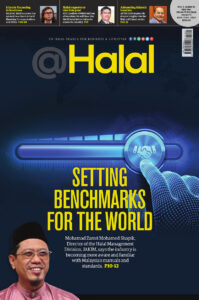
Dynamics of quality standards in Islamic tourism and hospitality

Alhamdulillah, as you are reading this article, Muslims worldwide are performing their obligatory fasting in the month of Ramadhan of 1445 Hijri.
Ramadhan falls on the ninth month of the Islamic calendar, when Muslims are obliged to fast holistically, covering physical, emotional, and spiritual conduct, as it is one of the five pillars of faith in Islam.
This obligation has its terms and conditions, as well as guidelines and standards that are observed and obeyed according to the capability and conditions of an individual. Some are exempted for reasons allowed by Shariah rules.
During this month, Muslims are required to perform the obligatory deeds and duties completely and devotedly to their level best and seek to obtain the best rewards and returns.
This month of Ramadhan also provides us with the opportunities to enhance our worldview, emotional and cognitive capabilities, hearing and listening skills, generosity and care towards becoming better persons, appreciative and benefit others in the community and society.
During this time too, in Malaysia, tourism establishments like tourism boards, hotels, tour operators, public and private agencies, NGOs and individuals are offering such programmes as Ramadhan bazaar, mosque tours and participating in tarawih prayers at various leading mosques in the country, Ramadhan familiarisation & educational tours for travel agents, tour guides and media, lectures and classes and al-Quran recital series and Iftar (Berbuka Puasa) and many more.
All are organised and collaborated in respect, tolerance, trust, peace and harmony.
DEMAND AND VALUE CREATION
Travel is not something unfamiliar among Muslims. There are provisions and flexibilities applied to Muslims during travel, and implementing tourism and hospitality activities including during Ramadhan.
They usually plan and organise their travel well in advance and tailor it to their needs, particularly on tour programmes, attire, foods, and faith-based needs.
As in other months, Muslims also perform umrah in Mecca and Madinah and visit places of interest, historical places, and hallmarks of civilisation, which are packaged and promoted to Muslims in Muslim and non-Muslim countries.
Besides Muslims, Islamic tours also attract the interest of non-Muslims who want to know more about the legacies of Islamic civilisation and history, which are rich in tradition and precision in their innovations and contributions towards arts, culture, lifestyle, gastronomy, politics, economy, military, science and technology.
History may repeat such excellent innovation and contribution, but this time, it is the contribution of Islamic tourism and hospitality to global tourism.
There are already several critical international events promoting Muslim-friendly tourism being organised, including World Islamic Tourism Conference (WITC) in Kuala Lumpur, the International Halal (Muslim-Friendly) Tourism Congress in Istanbul, the Muslim Travel Show in London, and many international Halal Trade Shows worldwide.
The global tourism industry looks to rebound, with more experts seeing a potential return of international arrivals to the 2019 level. One of the significant forces shaping the tourism economy is the enormous 2 billion Muslim population worldwide.
Not all may travel regionally and internationally due to various reasons. Yet they are travellers and potential travellers within their means and capacities. As the demand for travel among Muslims continues to grow significantly, it is imperative to ensure that the quality of tourism products and services prescribed in the halal standards are met.
These refer to the origin and processes of travel and tourism supply chains.
PART 1: ISLAMIC TOURISM STANDARDS
The tourism industry possesses various types of standards, legislations and certifications in the market that govern the well-being of businesses and developments, among others related to travel and tour operations, hospitality, accommodations, destination management, aviation, food & beverages (F&B), competency, sustainability, crisis and reputation management along with travel technology.
There are continuous efforts and initiatives in many countries to raise these standards to safeguard the interests of consumers and suppliers.
In the context of Islamic tourism specifically in halal and Muslim-friendly tourism, Malaysia has introduced the first standard of its kind to the industry as MS 2610:2015 Muslim-friendly hospitality services- requirements.
It became the principal source of documents for the Organisation of the Islamic Cooperation (OIC) through The Standards and Metrology Institute for Islamic Countries (SMICC) in developing a specific standard on tourism, known as OIC/SMIIC 9:2019 Halal Tourism Services – General Requirements.
In a similar interest, OIC/COMCEC/33-17/D – COMCEC MFT Guideline for regulating accommodation establishments was published in February 2017. (COMCEC and MFT refer to the Standing Committee for Economic and Commercial Cooperation of the Organisation of Islamic Cooperation and Muslim Friendly Tourism, respectively).
PART 2: THE IMPORTANCE AND BENEFITS OF ISLAMIC TOURISM STANDARDS
Today’s travel space is rather congested with more new entrants into the market. Hence, the industry has to face the complexity of segments – physical and psychological needs of travellers. It is dynamic.
The standards are required to facilitate these needs and requirements for the best benefit of end-users. They are developed not to curtail, limit and control innovation but to advance stakeholders’ thinking, acquire the best techniques and promote transformational leadership.
This considers the travelling patterns, demographic and behavioural change, and new social, political, geographical and technological environments, fulfilling the essential travel & hospitality principles.
Specific standards for the Muslim travel market ensure value creation, trust, and branding and are linked to the best quality measured within universal values and the Islamic framework.
Islamic tourism standards can be established end-to-end across the entire value chain.
These include halal food and beverages, halal/Muslim-friendly spas and wellness, Islamic cruises, modest fashions, Muslim family-friendly entertainment and media contents, halal medical, pharmaceutical and personal care products, women-only luxury retreats, tourism attractions, facilities, recreations, Islamic banking and payment gateways and many more.
PART 3: DEVELOPING ISLAMIC TOURISM STANDARDS
In developing Islamic tourism standards, subject to a particular segment, a destination has three things to consider – the purpose, process and outcome.
We have to ask ourselves the motivation and primary purpose, the process involved, and the outcomes of the standards to be developed.
Our decision may be influenced by the market environment, the market’s readiness, the purpose for setting the standards, the feasibility of practical applications and the current best practices.
Good standards will not kill the industry, but instead facilitate, inspire, encourage and transform the industry players towards complying, embracing and promoting the standard.
The challenge is, however, to strike a balance between encouraging and imposing compliance and practical implementation of the standards.
In terms of process, a good and dynamic standard must consider the interests of all stakeholders.
It requires reviewing any relevant current standards, understanding the real business conducts on the ground, comparing them against the faith-based needs of Muslim tourists, and getting the buy-in from relevant parties, like the entrepreneurs, regulators, suppliers, consumers, tourism industry players and NGOs.
This also emphasises the importance of protecting and conserving basic human needs, nature, and the environment to benefit generations who will live in harmony and respect each other.
For the benefit of tourists, specific tour packages can be developed based on this standard, covering purpose, process and outcome. They can even be a customised luxury tour programme to cater for high disposal income and special interest tourists who care for Sustainable Development Goals (SDGs) and Environment and Social Governance (ESG) through Islamic lenses and perspectives.
As a precautionary remark, having a good standard alone is not enough, but more importantly as how is that the standard brings and integrates benefits, respects, trusts, balance, good values, riba’- free profits and good reputation to suppliers, consumers and the country & global as a whole.
These are wide in spectrum and challenging to pursue. Islamic travel, tourism, and hospitality have the opportunity to show their leadership in this transformational travel era, insha-Allah.
May Almighty bless us all. Thank you. Wishing all @Halal readers a fulfilling and rewarding Ramadhan and joyful Hari Raya Puasa (Eid ul Fitr) and successful months ahead, insha-Allah. Maaf Zahir & Batin. See you again. – 








